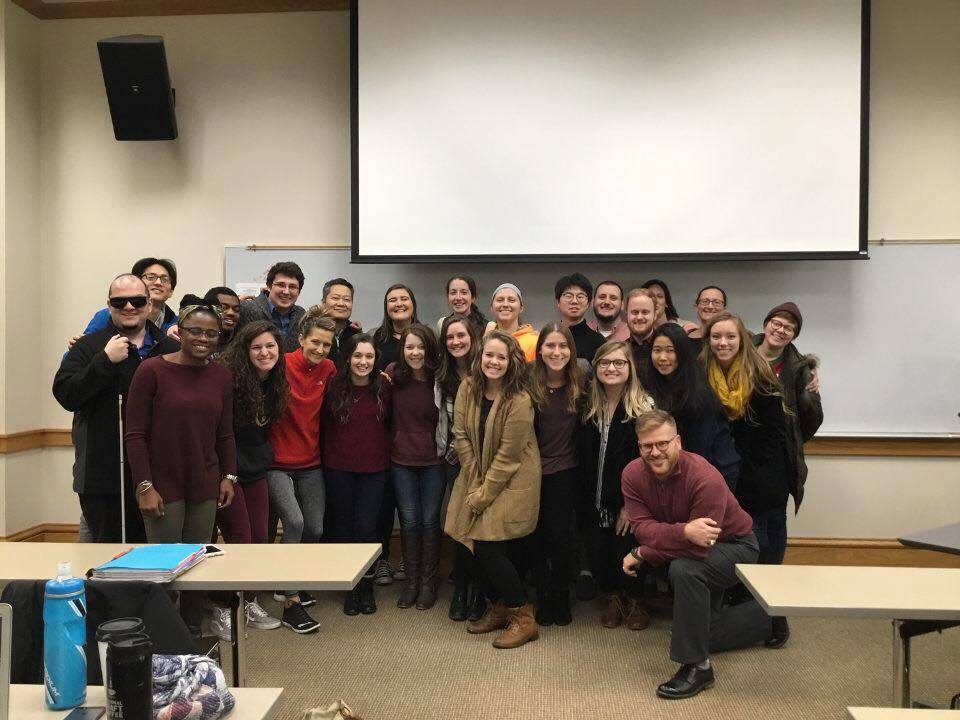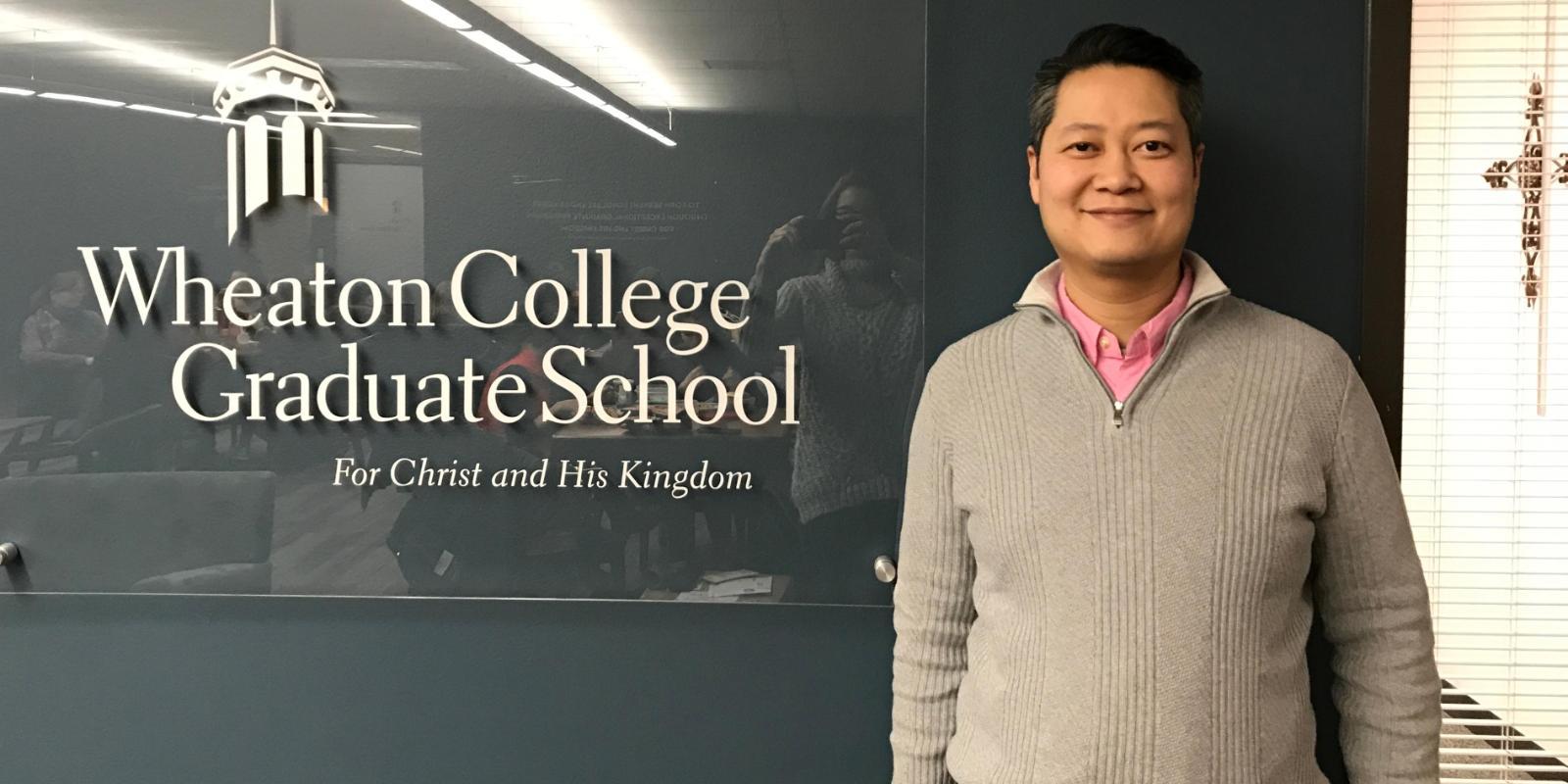April 25, 2018
This blog features stories about Wheaton College Graduate School. This story is about Li Tai, a pastor pursuing an M.A. in Clinical Mental Health Counseling.
After more than 20 years pastoring a small Chinese-American church in the western suburbs of Chicago, Pastor Li Tai sensed that something wasn't matching up.
"I thought about it, and I realized that about 80 to 90% of my pastoral work takes some form of counseling or care, and only about 10% is preaching and teaching."
However, as Li explains, he only took one counseling class while at seminary—and that was two decades ago.
"I needed a strong seminary training in biblical languages, leadership, and pastoral studies in order to do my work well. But being able to parse a complicated Greek sentence or preach a good, 40-minute sermon just isn't the skill set that is needed when you're sitting in your office with a family in crisis. I was bumping around in the dark."
Li notes that, historically, some evangelicals have been hesitant about the study of psychology.
"I know this attitude is changing, but psychology still sometimes has gotten a bad rap in the church for being 'too humanistic.'"
However, Li saw that he didn't have the vocabulary or skills to talk about or approach the issues his congregants were facing, and that training in counseling would provide him with those skills. So, he enrolled in Wheaton College Graduate School’s Clinical Mental Health Counseling (CMHC) M.A. program, right down the road from his church.
"The CMHC program is far from being 'too humanistic.' There is such a huge integration of faith and praxis at Wheaton, which is exactly what I was looking for. Now, my pastoral experiences and the needs of my congregation are making more sense, and I am building the necessary framework—a new language—to approach them with competence and confidence."

Li explains that there are few Asian-American counselors available in the western suburbs, yet there is a great need for counselors who understand the very specific linguistic, generational, and cultural dynamics that families in the Asian-American community face.
"While my degree is not a ‘career change’ for me, I believe it will open up new doors in serving my community. Many Asian-American families are hesitant to reach out for counseling outside of their community because the parents speak one language and have one specific cultural understanding, while the children speak English and are assimilated into American culture. Families need help bridging that gap."
Considering that Li's family immigrated from Taiwan to the states shortly after he was born, he is the perfect man for the job. In fact, there is such a need in the community, he is already receiving calls asking if he is practicing yet.
"I am looking forward to seeing God use my clinical training in the lives of my congregants and also in the lives of those in need in my community. In the end, I know that this is a deepening and an expansion of my calling to minister to people and help bring them to wholeness."
The mission of the M.A. in Clinical Mental Health Counseling is to develop competent mental health counselors who are shaped by their Christian faith and have a commitment to serving the underserved at home and around the world. Learn more about CMHC at Wheaton.
